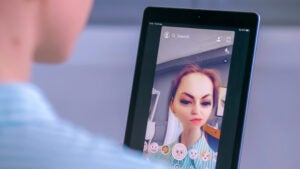 “Data-Driven Thinking” is written by members of the media community and contains fresh ideas on the digital revolution in media.
“Data-Driven Thinking” is written by members of the media community and contains fresh ideas on the digital revolution in media.
Today’s column is written by Opher Kahane, co-founder and CEO at Origami Logic.
Not too long ago, marketing circles were abuzz with the looming death of creative Don Draper-types.
With the surge in programmatic advertising, which automates much of the decision-making process for media buying, some argued that data lovers would take the reins as complex analytics and automated processes gained prominence. However, most industry players now recognize that creativity is still – and will always be – a critical element in successful marketing campaigns.
This does not mean that programmatic advertising and automated decision-making have taken a back seat, by any means. The continued rise of programmatic may lead some marketers to think that there may be a time when all marketing decisions will be automated, but that is simply not the case.
When Automation Is Key
Automation reigns supreme in marketing when making decisions under several conditions. For example, automation can’t be beat for decision-making that is real-time in nature. This is particularly relevant for the real-time bidding that occurs in ad exchanges.
Automation is also vital when scale is required. Many brands conduct automated, large-scale multivariate tests that run thousands of ads in parallel, such as display ads or social media ads, to determine which ones are the most effective.
Finally, automation is unmatched for tasks that are simple in nature. The recent Twitter ads that ran as part of Coca-Cola’s “Share a Coke” campaign offer a good example. Coca-Cola personalized the ads by inserting the names of individual consumers into them. This is a simple decision that can be made as ads are served to effectively deliver personalization.
When Automation Doesn’t Work
While many decisions will continue to be made in an automated fashion, there will always be a need for the human element in making marketing decisions in marketing.
Automation, for example, falls short and still needs the human touch for decision processes that involve setting strategy. This includes setting the goals for campaigns, selecting the target audience and developing the right messages. These tasks require a decision-making process that must take into account different perspectives. For instance, when it comes to setting the goals for campaigns, a variety of issues must be considered, such as aligning campaign goals with those of a business and the differences in goals among various regions.
Humans cannot be replaced in the creation of ads that evoke emotion. Some ads can strike an emotional chord by doing something simple in an automated manner – like the Coca-Cola Twitter ads mentioned earlier. However, most ads that tug on people’s heartstrings are not easy to develop. Computers cannot develop emotionally effective ads because they don’t understand the complex subtleties of human feelings.
Humans are also needed to make adjustments to market events. Sure, automated real-time bidding decisions are the classic definition of responding to market events, but there are many decisions that require experience and knowledge that cannot be programmed. For instance, when a competitor launches a campaign, decisions must be made about whether adjustments to copy, visuals, channel or tone are needed in response. A rich base of experiences and knowledge is invaluable when making these types of decisions.
You can’t optimize a campaign without people involved in the process. Once a campaign is running, even if it is automated in nature, humans should be involved to ensure that the campaign is effective. While tactical in-channel optimizations may be automated, many adjustments related to spending, creative, targeting and mix are best made with human intuition and decision-making.
A strong analogy can be made between what marketing organizations are going through today and what financial services firms experienced when automated trading was adopted in the late 1970s and early 1980s. While much of today’s financial trading is automated, it is widely acknowledged that human intuition still plays a critical role in the process. Marketing will come to a similar realization.
Ultimately, the marketing organizations that win will be those that have a breadth of decision-making skills. Organizations need to build marketing teams with three types of people: mathematical wizards who can drive the programmatic side of things, creative Don Draper-types who understand the emotional element and experienced analytical people who can interpret market events.
Follow Origami Logic (@OrigamiLogic) and AdExchanger (@adexchanger) on Twitter.












